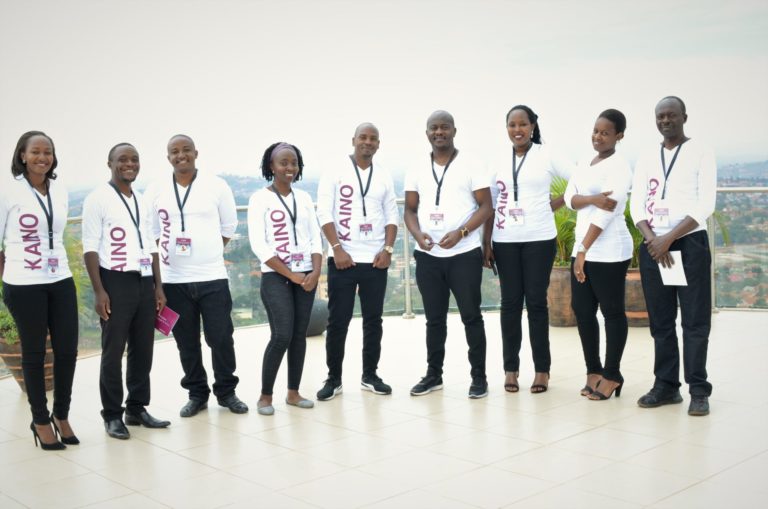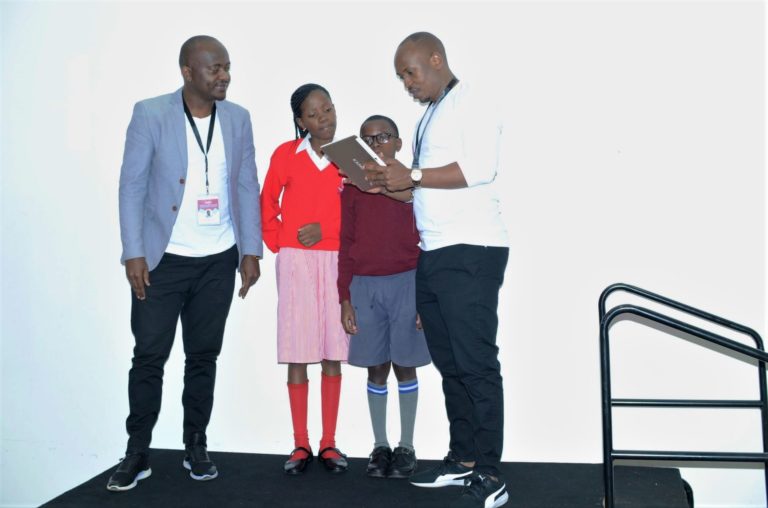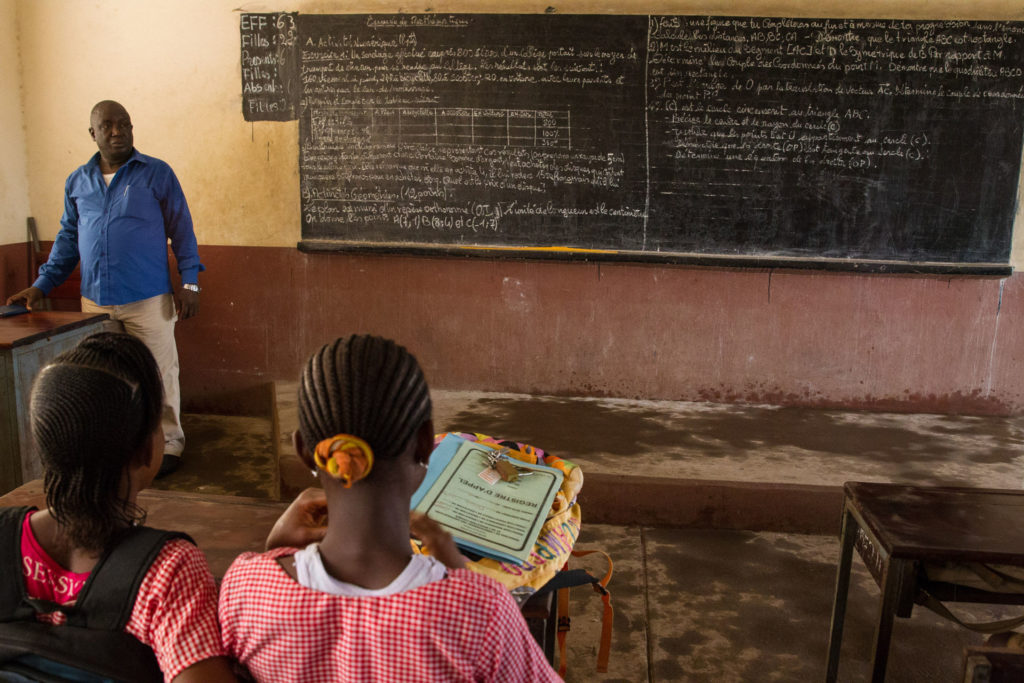Achieving inclusive and quality education for people living both in cities and rural areas is considered to be the primary goal for developing countries. The chronic teacher shortage and poor teaching standards leave little hope for individual self expression and community empowerment. At the same time the proliferation of handheld Internet and declining data prices popularize EdTech worldwide. Though it is hard to underestimate the role of a teacher in the education process, mobile applications simplify their work and increase the level of pupil and student engagement that eventually results in their performance.
Today we sit down to talk with Alfred Opio, Founder and CEO of KAINOafrica. It is an Ugandan EdTech and data driven start-up that empowers teachers by supplying them with KAINOtabs and digital educational content like textbooks with teacher guides at a low cost. Refugees and the most needy can get them free of charge.
What is your story? How did it influence your decision to start Kainoafrica?
Alfred Opio: I was brought up as a Christian who strongly believes in God and thank God for this opportunity. I’ve a background in Industrial Engineering and Management from Kyambogo University in Kampala with a major in process engineering and quality improvement. All the way from my high school, I was into computers and technology. I always found myself fixing electronics and computer related things but ended up doing engineering. At University I built innovative startups so different from what I studied which worked well for a while but ended up failing. I can now clearly say it was due to a big knowledge gap in the startup eco-system.
My vision for KAINO started being molded when I had a chance to go to a first class quality school and later went to a very moderate quality school and was alarmed by the huge inequality gap: excelling in this moderate school made me realize that my passing wasn’t based on how and what was being taught in class, but was rather about the extra effort (looking for good content) I individually put in because I always felt the educational system was too limited and conventional.

Having experienced the huge gap in our education sector – particularly the exclusion and inequality of access to quality education content, I started conceptualizing and writing down my idea and building concepts on how I would bridge this gap. I delved into intensive reading and decided to take some free courses online on applications development and financial management. I mainly used MOOCs from COURSERA and EDX. Entrepreneurs should have no excuse for not acquiring knowledge which is something many young people are yearning for.
With substantial knowledge, my vision had now gotten clearer, but the challenge was how and where to get funds to run as at this point bootstrapping wasn’t doing it.
I strongly felt I needed a mentor and had to take on a job at Skyz hotel – one of the most prestigious hotels here in Kampala – where I worked as a security officer just so I could get access to the proprietor, Mr. Patrick Bitature who is a successful entrepreneur but I must say I didn’t succeed in meeting him as its too hard getting access and meeting these people.
It was during this time that Africa Blockchain conference happened and there I met a gentleman known as Brad Miller from Z-Cash. All I needed was a mentor; someone to look at my proposal and give me a guide or way forward. I asked him to look at my business proposal which he did: After looking at it, he asked me one thing; “What are you still doing here!”. He said I needed to have started the day before. But my issue was a team – as I had only a co-founder.
The following month I did quit my job and started pitching to individuals to join my team on an equity basis. During this time the developers were kinda reluctant to further the system development since we didn’t have any funding but at this point I couldn’t accept any limitation so i decided to further my course on building apps with React Native from The Hong Kong University of Science and Technology. When I noticed how much knowledge I had received and how it had changed my life and understanding of the underlying technology needed to run my startup, I wondered why we as African still sell content!
I then decided to raise funding from friends and family, form a content development team and I must say God blessed me with the most wonderful team especially when it comes to their expertise and create content for all African children which any user can access free of charge too. And that’s how the KAINO system was brought to life.
What kind of activities does KAINOafrica do?
A. O. : At KAINOafrica, we stand for teacher empowerment as we believe teachers are the number one driving force in schools while leveraging on technology to transform how they get access to and deliver national curriculum aligned lessons across Africa. We use the KAINOtab as our main product distribution channel but also use web and mobile apps. We also provide teacher training workshops to each school that enrolls onto the KAINO system. We strive to create a leveled ground between rural and urban schools with increased access to low cost and quality education content for earners in Africa.
Where do you see your company in 5 years?
A. O. : In the next five years, we should have a remarkable presence in East and Central Africa with over 10,000 schools and 20 million children’s lives impacted by ensuring inclusive and equitable quality education and lifelong learning opportunities for these African children.
What makes your products special?
A. O. : The teacher guides are a masterpiece designed in-house by a team of highly experienced experts and they deliver a blended hybrid curriculum made up of the African curriculum framework with a touch of the STEM approach, British, American and the Canadian curricula all in one for every Country as per the Nation’s curriculum development centers. The KAINOtab allows teachers to have easy access to digital textbooks at a touch of a button. The system can be deployed in the most rural part of Africa.
How many customers have you had so far?
A. O. : Having launched the KAINO system on the 11th of September 2018, we have been building a more robust cloud based system which we’ve just completed and now developing ECD content for pre-primary schools. We are still running a pilot test of this system with 1,000 parents, 500 children, 50 teachers and 4 schools including 1 refugee camp (Bidi-bidi refugee camp in Yumbe district). This is our first year in the market but the demand for the system is overwhelming and can’t be met because of the intensity of the capital investment.

What do you think are the main challenges for the development of Edtech projects in Africa?
A. O. : Wow, this is an interesting concern because it has killed great EdTech projects that were developed before KAINO. Here is the real challenge: many EdTech entrepreneurs develop systems with the idea of generating a lot of money out of the system. so the money becomes the driving factor and not solving the problem revealed to them. Once they hit the market, schools love the system and agree to pay for it.
Once schools enroll, they simply don’t pay; primarily because of the parents who just take long to understand the system. So the payment becomes a real snag and sadly many EdTech entrepreneurs deactivate the school accounts and end up shelving the system and looking for jobs with great frustration making it a lose-lose situation.
The EdTech terrain in Africa needs a mind that is after solving a problem because the value of the system must firstly before anything be communicated to the potential customers and the impact will definitely be felt by many potential investors/NGOs.
So EdTech entrepreneurs have to really be patient with the market.
Editor’s Picks — Related Articles:
 “The Challenge of Universal Education: The Bridge Model and How it Works”
“The Challenge of Universal Education: The Bridge Model and How it Works”
 “Spreading Worldwide Education: An Interview with Learning Equality”
“Spreading Worldwide Education: An Interview with Learning Equality”
What are your thoughts about the SDGs (Sustainable Development Goals)?
A. O. : Looking at the SDGs, I believe they are carefully well thought out to make the world a better place. As KAINOafrica, we are contributing the SDGs 4 (We are developing high quality education content for the consumption of all children regardless of their location – rural or urban), 8 (we create descent work and economic growth by training the school teachers on the best teaching practices of the 21st century and technology usage and increasing economic growth by increasing the sales of the local publishers using our digital textbook platform) and 10 (we enable the children in the rural and excluded areas to get access to the same quality education content that their counterparts in the urban areas are exposed to at a very low cost or even free of charge).
FEATURED IMAGE CREDIT: UNMEER on Flickr
EDITOR’S NOTE: THE OPINIONS EXPRESSED HERE BY IMPAKTER.COM COLUMNISTS AND/OR BY THOSE INTERVIEWED ARE THEIR OWN, NOT THOSE OF IMPAKTER.COM.
[et_bloom_inline optin_id=optin_1]










